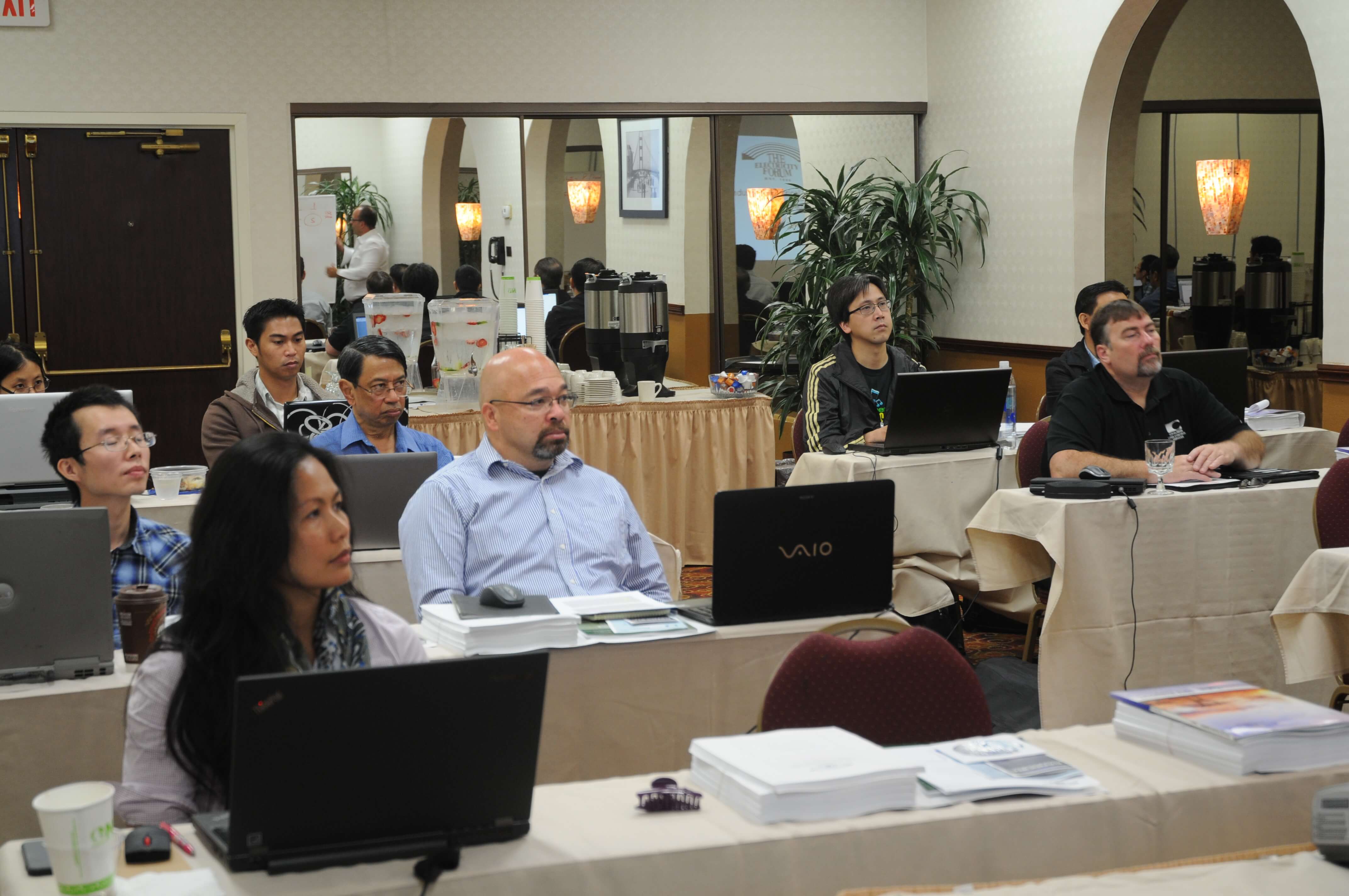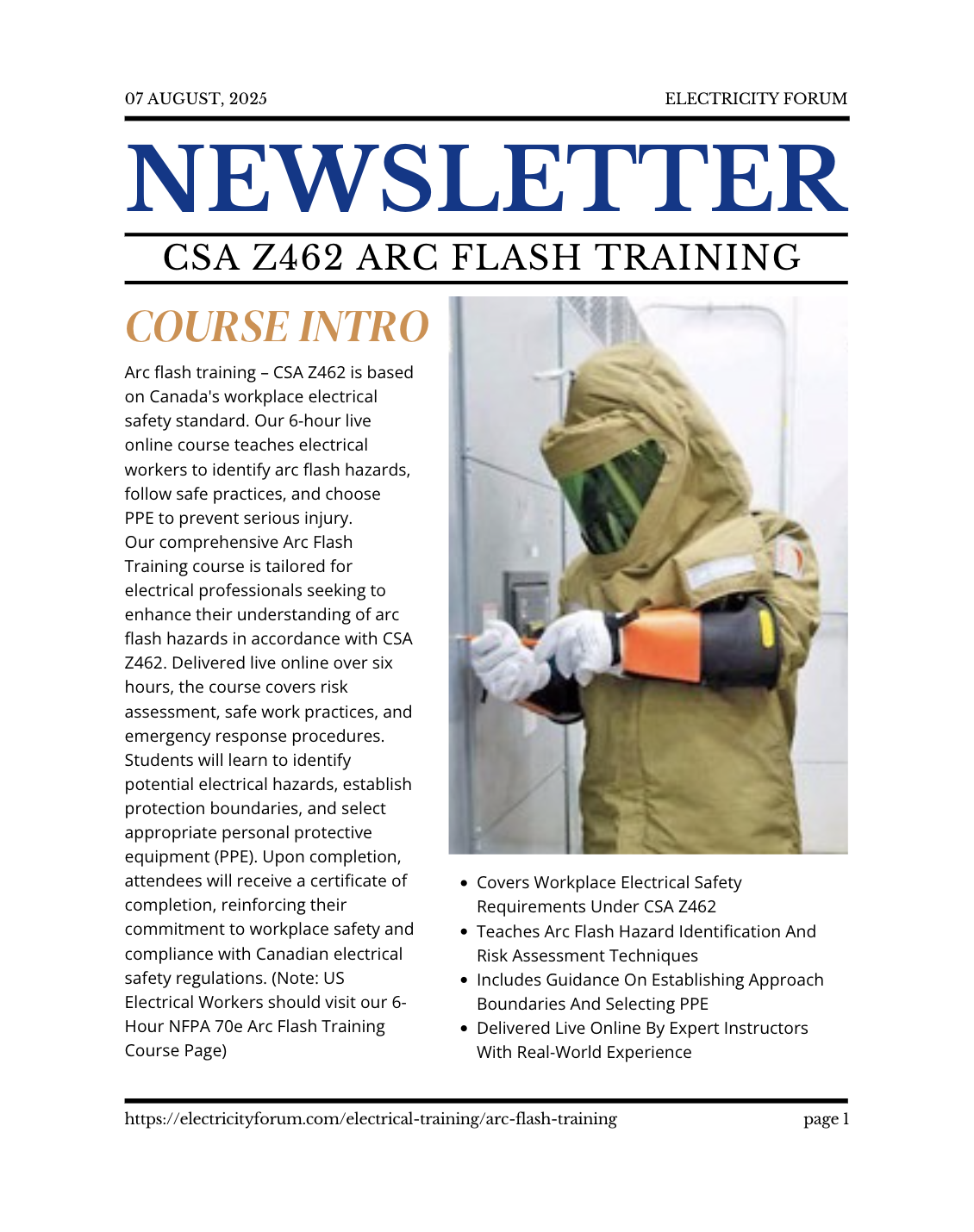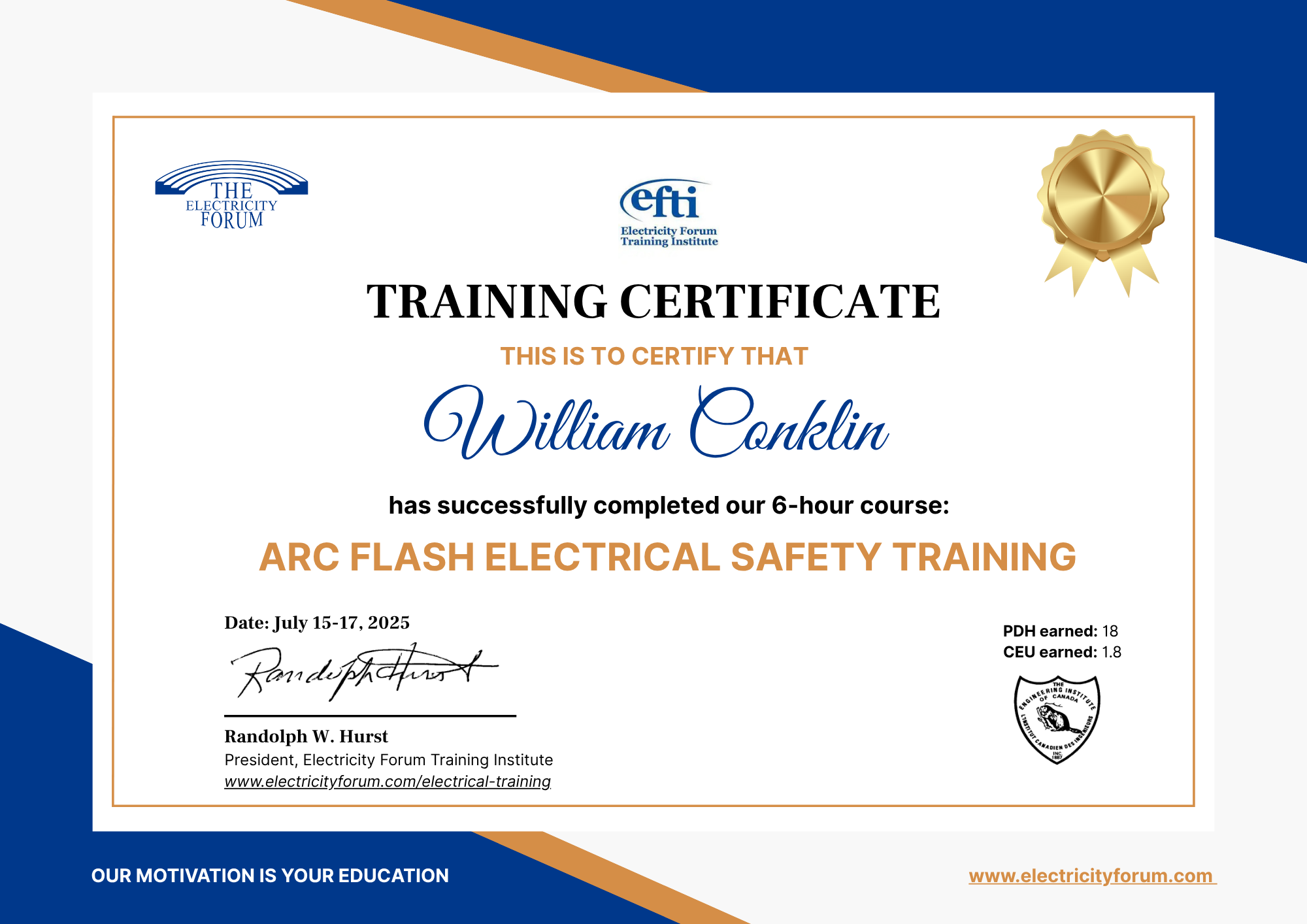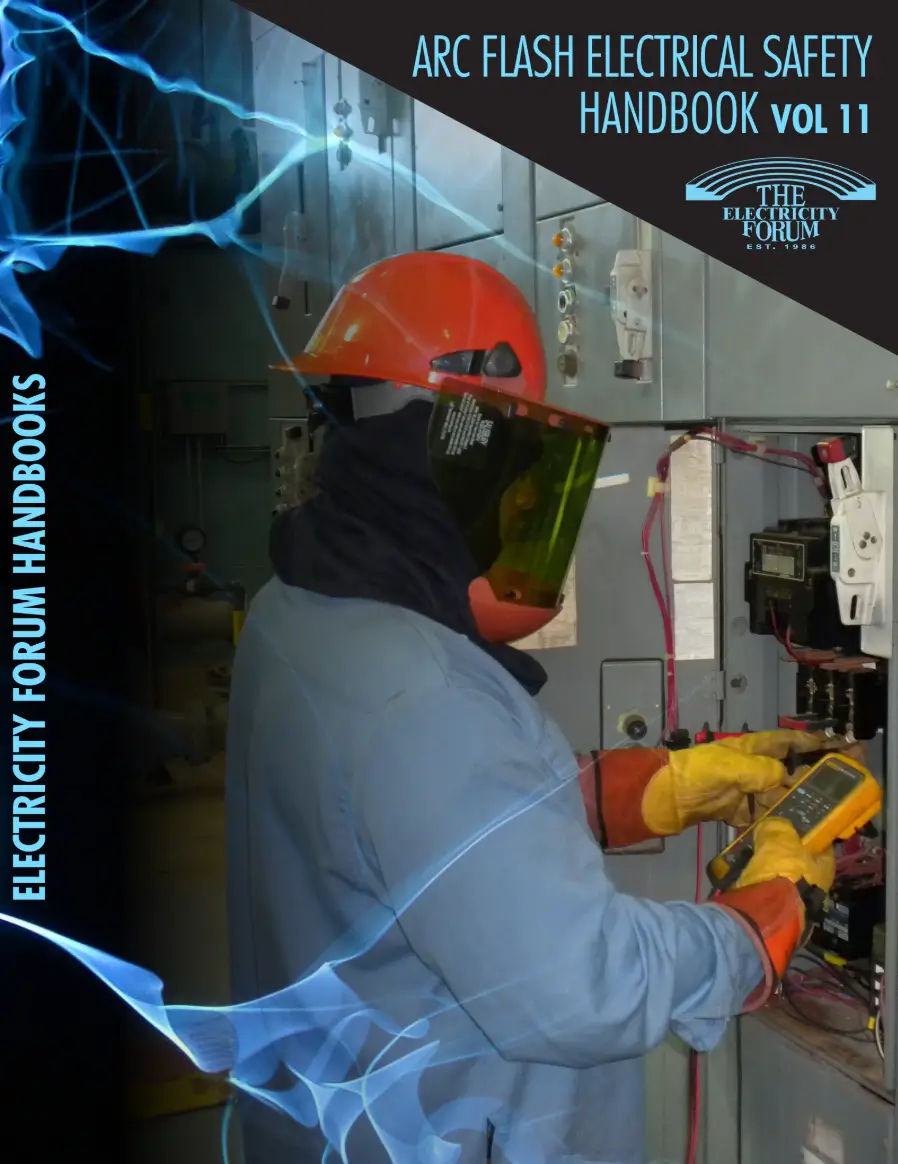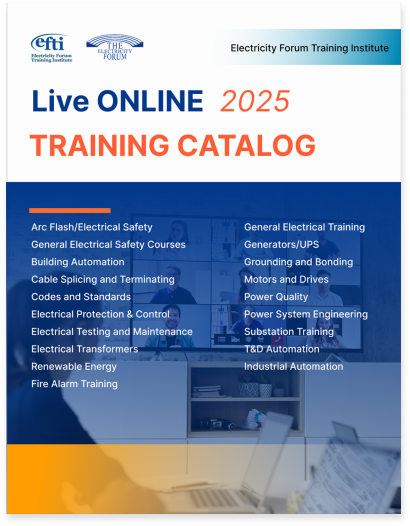NFPA 70E training teaches electrical workers to recognize, evaluate, and control arc flash and shock hazards. This six-hour live online course helps ensure OSHA compliance, safer workplaces, and reduced downtime by promoting effective electrical safety procedures and arc flash awareness.
What Is NFPA 70E Training?
Our 6-hour live online instructor-led NFPA 70E training course prepares qualified electrical workers to meet the National Fire Protection Association’s electrical safety standard for workplace protection. It explains the critical relationship between OSHA and NFPA 70E, moving through the standard article by article to highlight essential safety requirements and best practices.
NFPA 70E training teaches electrical workers to recognize, evaluate, and control arc flash and shock hazards. This six-hour live online course helps ensure OSHA compliance, safer workplaces, and reduced downtime by promoting effective electrical safety procedures and arc flash awareness.
NFPA 70E training is essential for anyone exposed to electrical hazards in the workplace—electricians, maintenance personnel, contractors, engineers, supervisors, and safety professionals. For visual examples, visit our Arc Flash Video page.
While essential for qualified workers who install, maintain, and repair electrical systems, this training also benefits facility managers, building owners, and unqualified staff who work near energized equipment. Understanding electrical hazards enables everyone to prevent accidents, reduce risk, and maintain productivity. See how training saves lives by reviewing Arc Flash Injuries.
A key element of NFPA 70E training is learning to identify exposed energized parts, apply insulation and shielding correctly, and choose the right personal protective equipment (PPE). For PPE ratings and categories, refer to our Arc Flash PPE guide.
NFPA 70E Training Benefits
NFPA 70E Arc Flash and Electrical Safety training provides major advantages for both individuals and organizations:
-
Enhanced safety: Workers learn to identify and mitigate arc flash and shock hazards.
-
OSHA compliance: Meets legal safety training requirements.
-
Accident reduction: Minimizes electrical injuries and equipment damage.
-
Greater efficiency: Trained workers perform tasks safely and confidently.
-
Cost savings: Preventing incidents reduces medical and operational costs.
Investing in this course helps organizations build a compliant, efficient, and safety-driven electrical culture.
What You Will Learn
This comprehensive course teaches you to:
-
Define short circuits, electrical arcs, and arc flash parameters.
-
Understand how to calculate and reduce arc flash energy. Performing an Arc Flash Study is a critical step in hazard mitigation.
-
Select the correct PPE for each task and voltage level.
-
Apply safe work procedures to prevent shock, electrocution, and arc blast.
NFPA 70E covers all aspects of electrical safety—from installation and maintenance to equipment protection. OSHA’s mandates are based on this standard. Students earn an Arc Flash Certificate of Completion upon finishing the course.
Upon Completion, You Will Be Able To
-
Identify the latest updates in NFPA 70E (Articles 120, 110.1, Table 130.5, PPE Standards).
-
Understand the connection between NFPA 70E and OSHA.
-
Define electrical hazards and implement protective measures.
-
Determine Arc Flash PPE Categories using the NFPA 70E tables.
-
Apply safe boundaries defined by the Arc Flash Boundary.
-
Conduct an electrical hazard analysis and identify maintenance and grounding requirements for batteries and distribution equipment.
Related Courses






